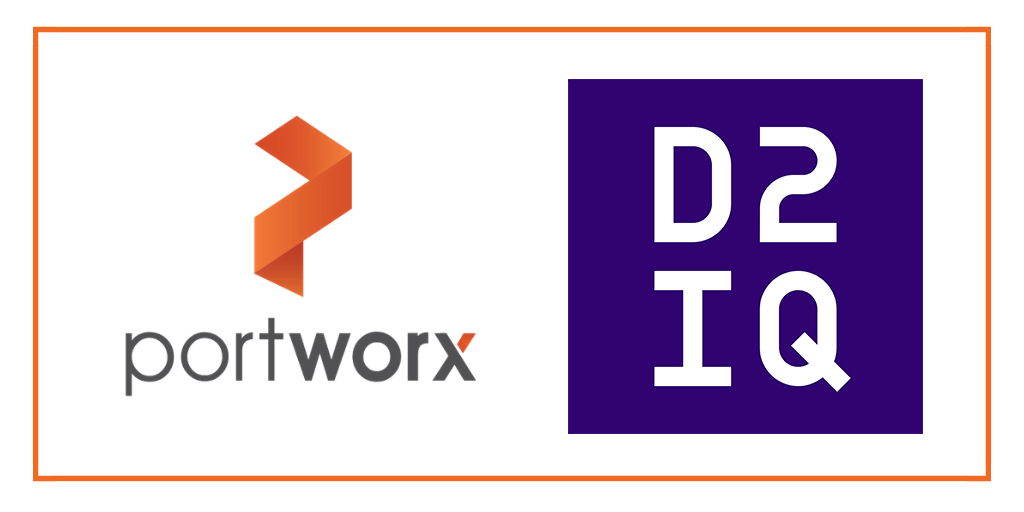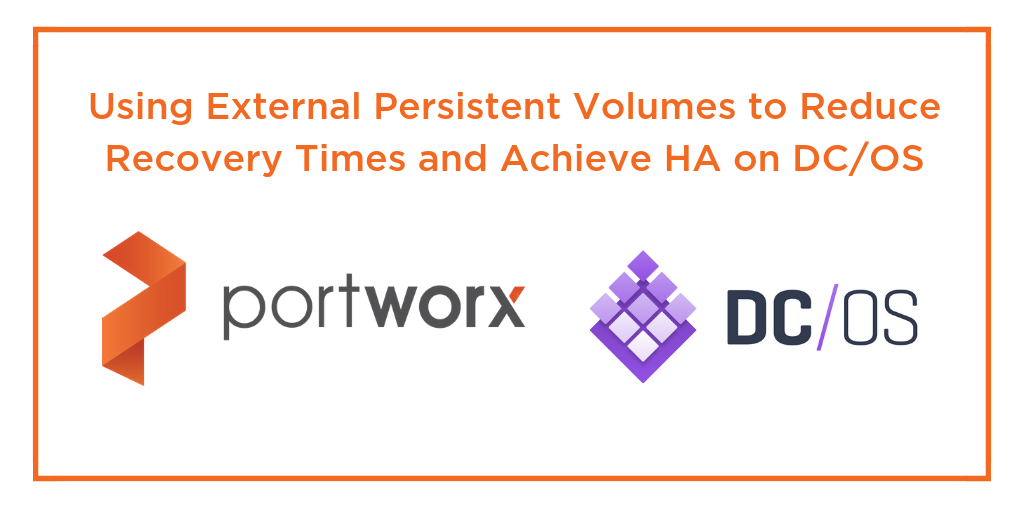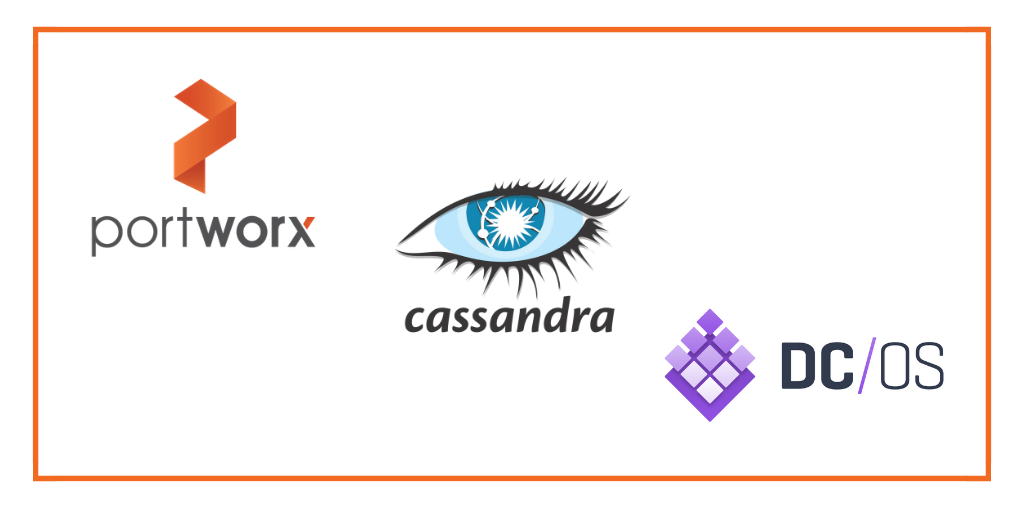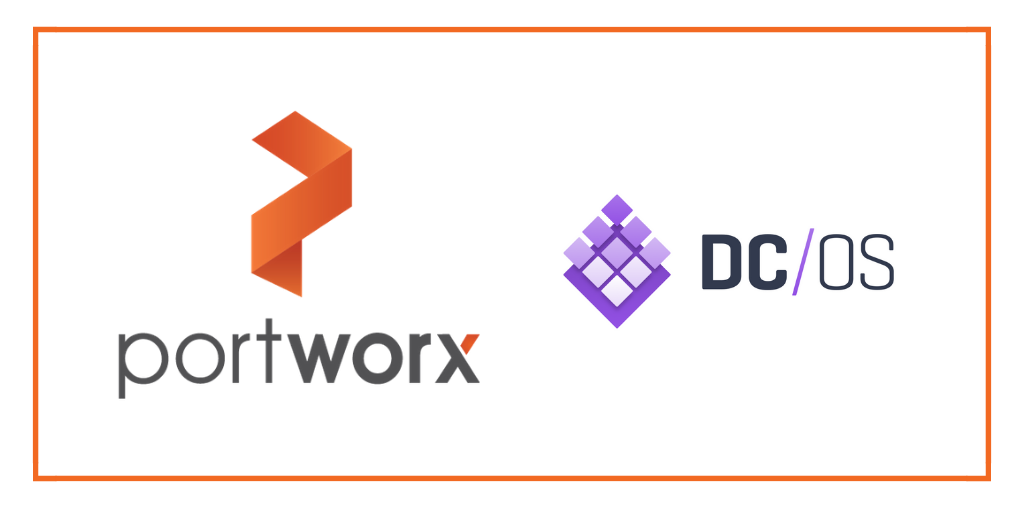D2iQ, DC/OS and Marathon make it easy to build and run modern distributed applications in production at scale by pooling compute resources across an entire datacenter or cloud. As stateful applications go into production, they need persistent storage. Portworx installs on Mesos nodes and pools storage capacity across the cluster enabling elastic storage capacity, synchronous replication, encryption at rest, backup, and more. If you are thinking about running stateful apps like Cassandra, Elasticsearch, Hadoop, Spark, or Kafka on DC/OS, this guide is for you.
Problems with stateful apps on DC/OS today:
- Tasks pinned to a single host
- Storage resource requirements are fixed at start time
- Only one task per volume
- Volumes at run time can’t be dynamically provisioned
Portworx Provides Persistent Storage for DC/OS
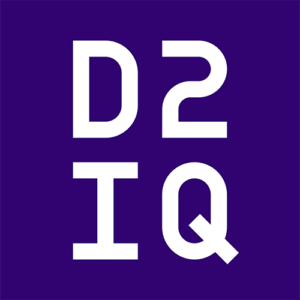



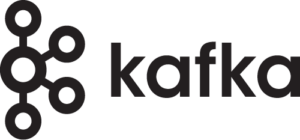
Install Portworx directly via D2iQ
Getting started running stateful services is easy. Portworx can be installed directly via D2iQ as a DC/OS service. This service will deploy Portworx along with the dependencies and additional services to manage the Portworx cluster.
Use Portworx with DC/OS Commons frameworks for the most common stateful apps
DC/OS services are Marathon applications that are packaged and available from the public DC/OS package repositories. These frameworks are available for some of the most popular stateful services including, Cassandra, Elastic Search, Hadoop, Spark or Kafka. Alongside Portworx, these frameworks make it easy to deploy and manage stateful apps on DC/OS, eliminating nearly all of the complexity traditionally associated with running on of these clusters.
Solutions to the most common problems encountered when running stateful services on DC/OS
Many enterprises who have tried to use DC/OS for stateful applications at scale have stumbled when it comes to using the platform for services like databases, queues and key-value stores. With the default storage driver on DC/OS, tasks pinned to a single host, storage resource requirements are fixed at start time, only one task per volume is allowed and volumes at run time can’t be dynamically provisioned. Portworx solves all these problems while also providing off-site backups, encryption of data in flight and at rest and full automation of data management.
True Data Management Using DC/OS
Portworx’s deep integration into DC/OS gives you the benefits of Portworx storage management, directly through your scheduler. For instance, Portworx clusters automatically span hardware racks and availability zones, so you can run databases and stateful applications uninterrupted by hardware failures and public cloud outages. Additionally, Portworx container-granular replication means that losing a node or disk in your cluster doesn’t result in downtime or degraded performance.


